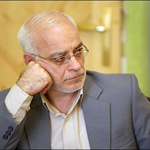Western Countries Are Trying to Extort Iran

IRD: Why has Iran refused to commit to resuming negotiations with the West on the date set by Catherine Ashton?
HB: This is actually Iran’s response to the US’ and the Vienna Group’s rejection of the Tehran Agreement between Iran, Brazil and Turkey in May 2010. Iran expected the West to acknowledge the Tehran Declaration and start a new round of nuclear talks based on the agreements made between Tehran, Ankara and Brasilia.
Iran is trying to manipulate the procedure of nuclear talks to exhibit its frustration with Western countries’ attitude toward the Tehran Agreement. Iran wants to demonstrate to Western countries that they’re not the only ones to say when, where and how the negotiations will take place. Negotiation is an interaction in nature. It needs an initial agreement. So we need to wait for primary talks between the undersecretaries of Catherine Ashton and [Iran’s chief nuclear negotiator] Saeed Jalili to get a hint of what the West’s idea is about the Tehran Declaration and the Vienna Talks.
IRD: Why is Iran reluctant to resume the nuclear talks? Is there an attainable solution to break the impasse?
HB: The problem is that the West is trying to pressure Iran. It’s the old ‘carrots and sticks’ policy, sanctions as the sticks, and nuclear talks as the carrots. Iran does not want to sit at the table while it is under pressure, and regards this as a sort of extortion. If negotiations are aimed at achieving peace and security, a friendly climate is required.
Iran actually believes in negotiations as the only solution. But it wants to know what is supposed to be gained from the talks. Is it that it should halt uranium enrichment? If so, there is no reason to resume the negotiations. But if Western countries are trying to reach an agreement with Iran through logically defined means, the shared goals of the proposal packages of Iran and the West should be studied and set for operation. The West has refused to undertake this task so far.
The agenda and objectives of the nuclear talks should be clarified. The West needs to be assured that Iran won’t move toward weaponization of its nuclear program. Iran, on the other hand, should be comforted that there are no impediments to its peaceful nuclear efforts. No more events like the Tehran research reactor saga should occur. The reactor is in need of uranium fuel, but Western countries refuse to sell the fuel –Iran’s legal right as purchaser under the NPT- to Iran. This undermines mutual trust. Both sides need objective guarantees, anyway.
IRD: How possible is it that the West answers the questions and problems posed by Iran? Is Iran actually looking for the answers?
HB: No, there shouldn’t be any answers. Iran is trying to clarify the framework of the nuclear talks. The Israel question aside, other problems can be solved during the talks.
IRD: Any chances that Iran’s nuclear dilemma will be solved in the near future?
HB: I’m not so sure. The West should admit the unfairness of its current policies and acknowledge a nuclear Iran. The next step is to determine a set of regulations that assure Iran’s non-deviation from its peaceful program. It is not fair to deprive Iran of its right just because of Western countries’ worries.
The course of nuclear talks has shown that for every step back by Iran, the West has moved two steps forward. Iran was seeking a middle way through the Tehran Declaration, but Western countries wasted this opportunity.
If Iran stands firm on its right to possess nuclear know-how, the West will withdraw. The US and other Western countries have focused their efforts on a short-term intensive pressure tactic hoping that Iran will succumb to their pressures, but if the Iranian nation shows resistance, I’m sure they will rethink their strategy.
Hassan Beheshtipour is university professor and foreign affairs analyst.

